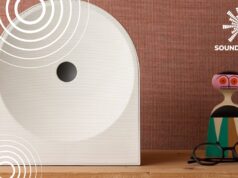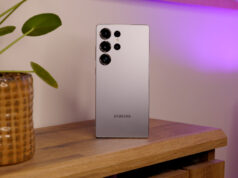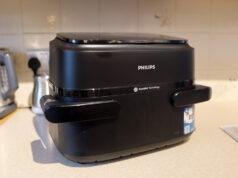A steam mop is designed specifically for hard floors, with a microfibre cloth used to pick up dirt and steam pushed through the cloth to clean and remove dirty. A steam cleaner is different, as it has different attachments for different jobs: nozzles and brushes for detail cleaning, window cleaning accessories and more.
The latter is better for tackling jobs around the house, but a steam mop is more convenient for everyday use. If you want a balance, you can get models that convert from a mop to a handheld unit for occasional detail jobs.
Steam cleaners don’t have to use detergent, and use clean water and steam alone to remove stains. This makes them more gently cleaners in some regards, as you don’t have to use harsh chemicals to remove stubborn stains. That’s not to say that you shouldn’t use chemicals in the normal way.
For example, for cleaning floors and surfaces, using traditional detergent and disinfectant makes sense, although you can then use a steam cleaner afterwards for dealing with some stains. Likewise, you should still clean with cleaning products for the deepest clean, letting the steam cleaner handle deeper jobs.
The larger the tank of water you have, the longer the steam cleaner can keep cleaning. This is more important on some models than others. Many models have a refillable water tank that you can remove and top up when you like. These ones heat water when its pumped from a tank, effectively giving you continuous cleaning. For these models, the size of the tank isn’t so important, as you can get water when you need it.
If you have a cleaner with a built-in tank where all of the water is heated at the same time, you have to have a cool-down time (up to 20 minutes or so) before you can refill and use them again. For these models, it’s important to have a running time that will last for the length of job you have, so that you don’t have to pause in the middle of cleaning.
Steam cleaners, bar standalone steam mops, will come with a variety of attachments for different jobs. Largely, these are there to make specific tasks easier. Each accessory works by changing how steam is directed, such as a thin nozzle to help push steam towards tile grouting, or by providing a tool to help clean, such as a wire brush for cleaning an oven. Tools can do both, such as an upholstery brush that directs steam over a wider area and gives you a brush to agitate the upholstery and loosen dirt. When you buy a steam cleaner you should think about the jobs you want to do and make sure that your chosen model has the right accessories.
Steam is generally safe to use on most surfaces but there are some exceptions to this. As you’re using water, using a steam cleaner on an unsealed surface isn’t recommended. And, surfaces that may react badly to a lot of water, such as solid wood flooring, may not be suitable, as you could get swelling.
The situation is worse if you apply steam directly to the surface but also applies with steam mops. Although mop heads will absorb most of the heat of the steam, they can still get very wet, which is no good for many surfaces. For dealing with hard floors, we recommend that you buy one of our best hard floor cleaners, instead.
Steam is an effective way to kill bed bugs and their eggs, thanks to the high temperatures proving lethal. If you’re worried about an infestation, then steam cleaning soft furnishings can help. Make sure that you use the upholstery attachment and/or mattress accessory to clean. You should move slowly over the area, taking at least 30 seconds before moving the steam head in order to deliver a killing dose of steam. Make sure that you cover all areas, and press the steam head into crevices and around the bed; for mattresses, cover the sides and underneath, too.
Karcher commissioned research that showed that enveloped viruses, such as SARS-CoV-2, can be killed by high temperatures. Spot cleaning for 30 seconds at maximum steam level was enough to kill the virus. This shows that cleaning close-up is required to be effective, so cleaning with a burst of steam can be a good secondary way of disinfecting surfaces, although cleaning with detergent should always be done. Steam can be good on surfaces that are otherwise hard to clean, such as curtains and upholstery.
Using a steam mop is slightly different, as the microfibre cloth absorbs some heat. Steam mops will remove dirt, bacteria and viruses, but the pad should be cleaned at a high temperature in a washing machine to disinfect it after use. In short, then, a steam cleaner can help disinfect surfaces but should be used as an additional tool after traditional cleaning.










